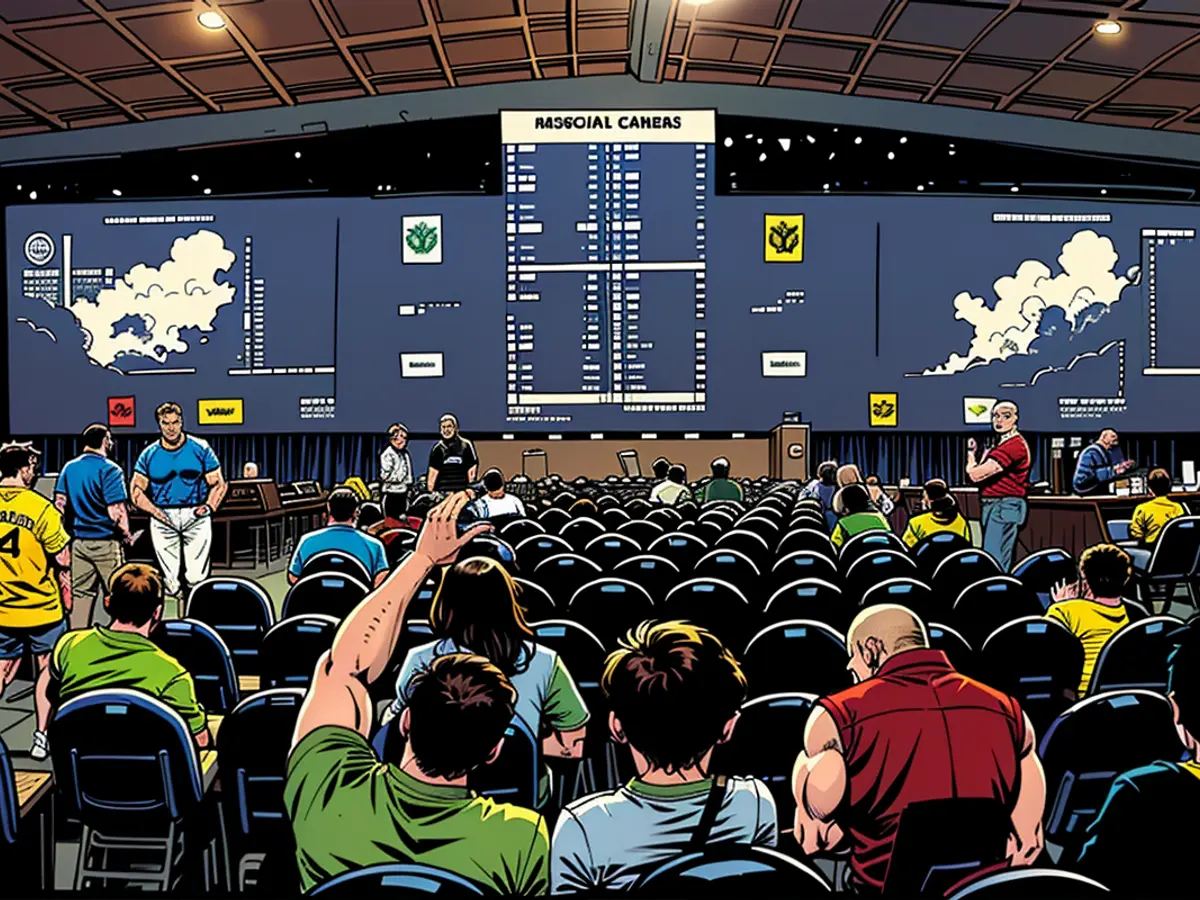South Africa's ruling coalition surfaces as the latest parliament session begins.
After the long-standing ANC, who has been in power since the 1994 elections, experienced their first loss in the May 29 vote, intense negotiating sessions with other parties lasted for two weeks, and finally, a power-sharing government between the ANC, DA, IFP, and Patriotic Alliance was on the brink of being created. As the newly elected parliament convened for their first meeting and lawmakers were swearing in, reports surfaced about a unity government having been agreed upon by these four parties.
A member of the ANC's governing body, Sihle Zikalala, posted on X: "Today marks the beginning of a new era where we put our differences aside and unite for the betterment of all South Africans." Meanwhile, DA leader John Steenhuisen was scheduled to address the outcome of the negotiations at 1.15 p.m. (7.15 a.m. ET).
According to the SABC, this coalition government would include the ANC, DA, IFP, and the Patriotic Alliance. The DA would claim the role of deputy speaker in the National Assembly.
The ANC leader and current President, Cyril Ramaphosa, was expected to win a new term in office, as three other partnering parties would cast their votes in his favor. However, no specific details regarding the agreement or the ANC's policy concessions were disclosed at the time.
The South African rand currency experienced a slight boost of about 0.3%, gaining value against the dollar, in response to news of an impending deal between the ANC and DA.
At 10:00 a.m. local time, Chief Justice Raymond Zondo began the new parliament session at a Cape Town convention center due to the previous parliament complex being damaged by a fire in 2022.
As late as Thursday night, the ANC communicated that the participation of other parties, including the DA, had been agreed upon, but a precise deal was yet to be hashed out. One DR representative on the party's negotiation team, Helen Zille, acknowledged during a Friday morning appearance on SABC that details were still pending and the DA lawmakers would back Ramaphosa for president "if the deal is signed."
The ANC secured 159 out of 400 National Assembly seats while the DA got 87. The populist uMkhonto we Sizwe (MK), led by former President Jacob Zuma, had 58 seats, and the hard-left Economic Freedom Fighters captured 39, while the Inkatha Freedom Party gained 17.
The ANC's major concern since the election was whether to form an alliance with the DA, which investors hope for due to its free-market policies, but is considered hostile by ANC voters, who perceive the DA as a guardian of the privileged white minority's interests. The involvement of the IFP in this coalition might win over ANC voters, with its Zulu ethnic base, while the Patriotic Alliance caters to multiracial support.
London-based Capital Economics commented that the potential for a coalition involving the ANC and DA received a positive response from investors, anticipating policy continuity or even accelerated reforms. Furthermore, the exclusion of the EFF and MK, whose agendas include swift land redistribution, large-scale nationalization, and expanded welfare support, was another advantage.
Read also:
In this new era of unity government, South Africa aims to improve the lives of all its citizens, as Sihle Zikalala, an ANC member, stated. This coalition includes the ANC, DA, IFP, and the Patriotic Alliance, with significant representation from various ethnic and political backgrounds in Africa.







